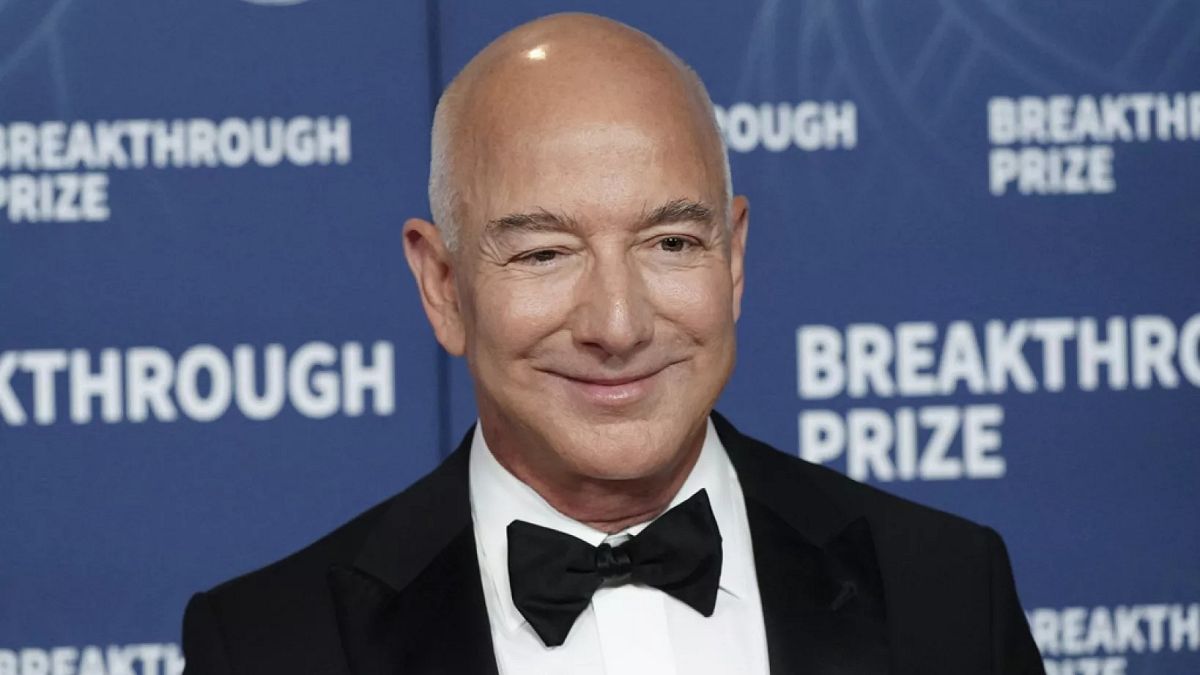Published on •Updated
On the one hand, nearly half of the world’s population — over 3.7 billion people — live in poverty. On the other, the world’s 3,000 billionaires gained $6.5 trillion (€5.5tr) over the last ten years, the equivalent of 14.6% of global GDP.
That’s according to a new report from the British confederation of NGOs Oxfam. The group added that since 2015, the world’s richest top 1% increased their wealth by more than $33.9tr (€29tr) in real terms.
This amount could do a lot of good in the world, and according to Oxfam, it is enough to end global poverty 22 times. The prediction is based on World Bank data from 2021, showing that people living in poverty need an additional $8.30 per day on average to afford their basic needs.
To not only end poverty but meet all of the other Sustainable Development Goals (SDGs) of the United Nations, including protecting the planet, the required sum would come to $4tr a year.
“Trillions of dollars exist to meet the global goals, but they’re locked away in private accounts of the ultra-wealthy,” Amitabh Behar, Executive Director of Oxfam International, said in the report.
While private wealth is increasing, governments are cutting aid
According to the report, wealthy governments have made the largest cuts to foreign aid since records began in 1960.
“The G7 countries alone, who account for around three-quarters of all official aid, are cutting aid by 28% for 2026 compared to 2024,” the group said.
The report also noted that 60% of low-income countries, where such aid is the most needed, are on the edge of a debt crisis. Low-income countries are often considered “risky”, and they therefore pay a lot more to finance debt from the market because of high interest rates, leaving less funding for healthcare or education.
Oxfam noted in its report that financing development should not rely on private investments, and instead the group recommended a “public-first approach”.
“Rich countries have put Wall Street in the driver’s seat of global development. It’s a global private finance takeover which has overrun the evidence-backed ways to tackle poverty through public investments and fair taxation,” Behar said.
Oxfam suggested that governments should invest in state-led development to ensure “universal high-quality healthcare, education and care services, and explore publicly-delivered goods in sectors from energy to transportation”.
However, Western governments are facing debt that is often equal to or more than their annual economic output, putting pressure on governments.
Public wealth is not growing as fast as private wealth.
Between 1995 and 2023, global private wealth grew eight times more than public wealth, which grew by just $44tr (€38tr). Private wealth swelled by a staggering $342tr (€292tr) in this period. For comparison, the annual global GDP is approximately $100tr (€85tr).
Oxfam suggested that governments should reconsider taxing the ultra-rich, saying that billionaires pay effective tax rates close to 0.3% of their wealth.
Oxfam International and Greenpeace together commissioned a survey examining what people think about taxing the rich in 13 countries, including the UK, France, Germany and Italy.
“Results of a new global survey show 9 out of 10 people support paying for public services and climate action through taxing the super-rich,” the study said, adding that there is an alarming need for financing in the UN’s developmental goals.
“Only 16% of the targets for the Global Goals are on track for 2030,” it concluded.

